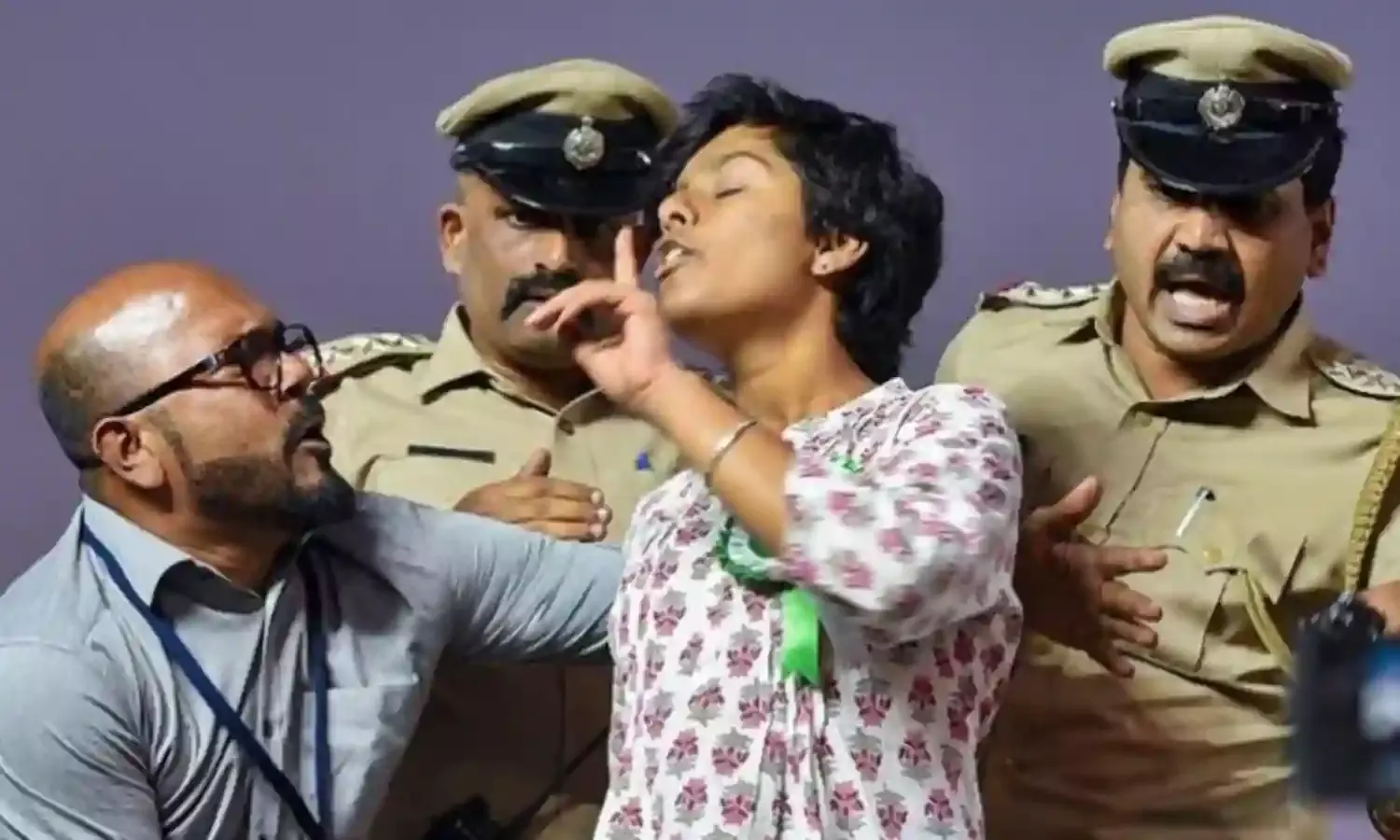Let’s Make India a Law and Justice Wonderland
On Amulya Leona and the institutions of justice

Amulya Leona raised the slogan “Pakistan Zindabad!” at a Bengaluru anti-CAA rally on February 21, 2020. She was arrested and taken into judicial custody, and charged with sedition among other charges.
However she may choose to explain its context or defend it, including following it with “Hindustan Zindabad!”, or whatever she is reported to have earlier posted on Facebook, Amulya’s “Pakistan Zindabad!” slogan is offensive as it supports Pakistan, which espouses violence against India.
On the following day, a monetary reward was publicly offered for any person who kills Amulya Leona. [“Srirama Sene leader offers Rs.10 lakh for killing Amulya”; Deccan Herald, 23.2.2020; p.1]. Others are also reported to have made threats or incitements to deadly violence, including a TV channel.
Howsoever heinous an offence or crime, or howsoever blatantly it is committed, the person committing a crime remains “the accused” charged by the State under extant law, until tried in a court of law with due process, found “guilty” and sentenced or found “not guilty” and acquitted.
State agencies continue due process of law until the sentence is completed, in accordance with Article 21 of the Constitution which states that “no person shall be deprived of his life or personal liberty except according to procedure established by law”. “Due process” is about adhering to “procedure established by law”.
In a civilized country, governance includes maintaining and upholding the rule of law, which precisely means “restriction of the arbitrary exercise of power by subordinating it to well-defined and established laws”. This applies to arbitrary exercise of power whether by the State or any person or entity who may possess social, economic or political power. This implicitly includes the idea of “due process”.
However, there are persons who arbitrarily exercise their powers of political influence, money or muscle over a person who has committed or is understood to have committed a certain act, by arrogating to themselves the State roles and functions of investigator, judge and executor.
It is beyond shocking that Minister B.C.Patil called for a law “to allow authorities to shoot down at sight those who speak ill of India”. [“Minister wants law to shoot ‘anti-nationals’ on sight”; Deccan Herald, 24.2.2020; p.1], which amounts to a law to support lawlessness. Has he contemplated the seriousness of the situations that may arise when he is out of power and of the oath that he has taken?
A person who arrogates to himself any of these State roles or functions commits the offence of interfering with governance by rule of law. Proceeding to exercise punishment or instigating another person to execute punishment against the person whom he has pre-judged as “guilty”, is punishable criminal violence.
In the Amulya Leona matter, the “Srirama Sene leader” has effectively awarded her with “death sentence” and offers to reward her executioner. No State entity has said or done anything in this regard.
Undoubtedly Amulya Leona will be tried by due process of law and if found guilty, punished. But serious acts of omission regarding the Srirama Sene leader’s “death sentence” against Amulya and reward to the executioner (and other similar threats of deadly violence) are:
# Elected officials appointed to office on oath to uphold the Constitution of India fail in their duty by not initiating action against open calls for murder.
# The Police fail in their duty by not taking cognisance of open calls for murder, and
# The Judiciary remains silent when it can take suo moto action to arraign the concerned person(s).
Rectifying these institutional acts of omission would certainly reduce the levels of violence in society by acting as disincentive to calls for violence, restore confidence among the public in the capability of governing by rule of law, and uphold the principles of the Constitution.
The foregoing raises some important questions, such as:
# Do persons who call for Amulya’s murder not have faith in the criminal justice system to prosecute and punish her, or do they reckon themselves superior to it?
# Is political influence, money or muscle wielded by individuals more powerful than elected governments and extant laws?
# Are constitutional authorities ineffective, or is their silence due to fear or complicity?
The Queen of Hearts, a character in Lewis Carroll’s “Alice in Wonderland”, when displeased with Alice screams “Off with her head!” and “Off with his head!” for others. The call for killing Amulya is nothing less than an arbitrary call for “Off with her head!”.
Let us not allow our India to sink into a state of lawlessness and chaos by demanding violence against persons who make statements which do not please us. The State has a constitutional role to play in maintaining law and order in society. Also, elected representatives at all levels, whether of the political party in power or not, have a sworn duty to maintain the rule of law.
Let us work to prevent our India sinking into a morass of hate, suspicion and violence, but on the other hand try to make it into a wonderland of inherited ancient wisdom of “vasudhaiva kutumbakam”, with justice, liberty, equality and fraternity which We the People have solemnly resolved to secure for ourselves.
(Major General S.G. Vombatkere, VSM, retired in 1996 as Additional DG Discipline & Vigilance in Army HQ AG's Branch)



